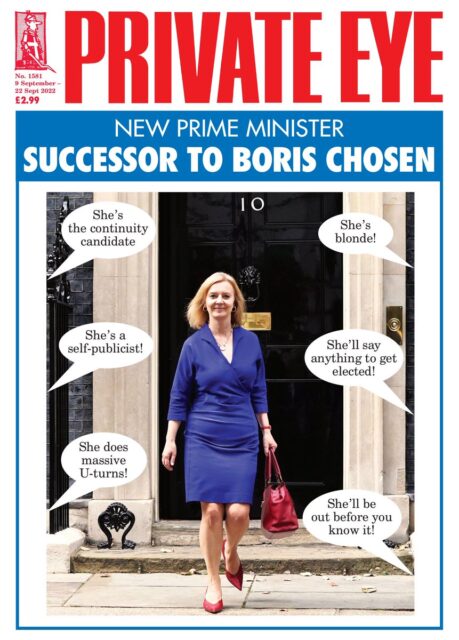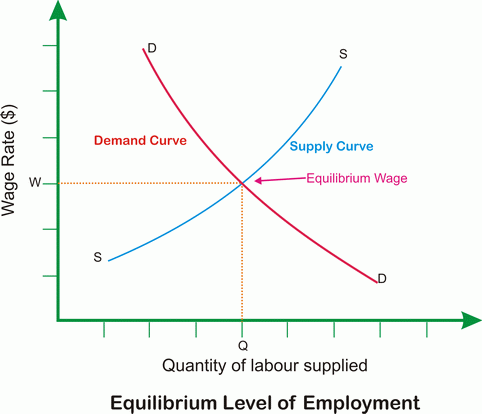… one of “capitalism’s” great ironies is that it creates several different breeding grounds for the ideology-addled idiot parasites that eventually destroy it. Politics is the most obvious example, but there are lots of others. The “education” business, for instance, is little more than make-work for idiots. You’ll never get rich as a teacher, of course, but a nice middle-class salary, great bennies, a nuclear-armed union, guaranteed lifetime employment, and fucking summers off is a very sweet gig indeed. The red tape and routines and meetings, endless meetings, are infuriating to anyone with more than two brain cells to rub together, but for a certain type of person — the kind of dull, vapid, lazily malicious person who would volunteer to be a Block Warden in the USSR — it’s heaven.
Indeed, it’s not going too far to say that these types of institutions are designed to chase off anyone brighter, more honest, or more hardworking than the average member. If you haven’t had any experience with teachers or school boards lately (you lucky bastards), think back to your last encounter with Human Resources, or your neighborhood’s Homeowners’ Association. The only person who can stand to work for HR or be part of the HOA is … well, is the kind of person who works in HR or is part of the HOA — dull, vapid, lazily malicious busybodies. They’re as lazy as they are dumb, as dumb as they are malicious. The key to dealing with them, like the Sovietologist’s key to predicting the Politburo, is figuring out which of their lovely personality traits is likely to come to the fore in a given situation.
Severian, “How Dumb Are Liberals?”, Rotten Chestnuts, 2020-07-31.
March 31, 2023
QotD: The education racket
March 20, 2023
McKinsey, in the backrooms, with a masterplan
Elizabeth Nickson suggests that the vast disruption of life in western societies, the transformation of governments from barely competent to actively tyrannical, and the economic undermining of middle class prosperity may all be linked to one management consulting firm:
The brutalism of government during the last three years was anomalous in western democracies. First of all, it was irrational, it contravened common sense, which almost everyone possesses, and it destroyed millions of household economies and small businesses. It impoverished and starved a billion people in the developing world. It killed the old, brutally, refusing them affection in their last days. It divided us and is still dividing us. The virus was engineered by the government and paid for by the people it was unleashed upon. And then the fiends forced injections upon anyone with a job and a family to feed, via relentless propaganda, where it too contravened basic reason (acquired immunity, tiny effect on people under 70), and then the shot started to kill. And the deaths were ignored, records hidden, and the press was quiescent.
Who did this? This wasn’t normal government behavior. Government is usually just incompetent. At the very least it pretends compassion, is generally well-meaning, its check the voting booth. But now, it’s full-on Satanic. And the voting booth is essentially gone, corrupted by cartels, the CCP, the international left, the profiting UniParty.
But this niggled at me. Who drew up the plan, instituted it in every country, bullied every citizenry, devised the advertising, instituted the protocols? What operation has that level of power, of discipline?
Only one answer: McKinsey. McKinsey innovated and executed the whole damned thing. Mr Google is quite clear. In France, in Canada, in the U.S., in Australia and New Zealand. The cruelty, the ruthless crushing of millions, it was all them. In Canada alone they made $100 million “transitioning” government’s duty of care into a brutal suppression of anyone without elite status.
McKinsey is the international consultancy that lands everywhere that owners want to maximize their income. It is profoundly efficient. It privileges the predator class and institutes a brutal Darwinian system for everyone else.
“We don’t do policy,” said Richard Elder, DC Mckinsey chief. “We do execution.” Sure, buddy, you aren’t at the meeting where they tabletop ICE budgets, game the Chicago Health bureaucracy by Kaiser or how to sell more opioids to teens?
Trudeau had to have taken McKinsey advice when he set planeloads of anonymous black Kevlar-clad mercenaries on Canadian truckers and their supporters. He simply doesn’t have the nerve to do it alone. That action was unprecedented in Canadian history. Even the poodle press thinks McKinsey runs Canada. It has contracts across ministries, its former CEO, Dominic Barton, is Trudeau’s ambassador to China, and he is likely guiding some of the election theft that has been taking place under Trudeau. Whether McKinsey games immigrant ballot harvesting remains to be seen, but it bears its fingerprint.
January 16, 2023
The music industry fails to capitalize on the vinyl revival
It’s kind of hard to believe, but the companies that control the pressing of music into vinyl appear to have no clue about the business they’re in:

“Framed Vinyl Album Art: America ‘Homecoming’; Nick Gilder (Studio Copy of Singles From ‘City Lights’ Chosen for AOR); Climax Blues Band ‘FM Live’)” by JoeInSouthernCA is licensed under CC BY-ND 2.0
I’d heard so many grand claims for the vinyl resurgence, but the reality was tremendously disappointing. And I was a late adopter — the revival had been going on for a decade, but record labels still didn’t have their act together.
In my case, I ended up buying vinyl albums, but mostly used ones. I simply couldn’t find new pressings of the records I wanted. This was fine for me, but lousy for musicians and labels — who make no money on the sale of a secondhand vinyl album.
I have some experience in these matters — in my alternative career I worked with CEOs chasing after fast growth product categories. I know how they handle these situations. But, really, it’s no mystery. The strategies you use in this kind of business are very straightforward:
- You add manufacturing capacity aggressively — to make sure you have enough product to fuel growth.
- You bring down costs by getting scale advantages. But this only happens because unit costs drop as volume increases. So the single biggest goal is to grow sales as hard and fast as possible.
- You constantly reduce prices to keep demand building. In some cases, you even set prices below your costs to accelerate growth rates. When I originally saw companies do this I was skeptical — how can you make profits if you sell below your costs? But I soon learned that you eventually got a huge payback.
- You keep expanding the product line, so that you constantly have something new and exciting to sell to every potential buyer.
- You invest in R&D so that you eventually have a next generation technology to keep the growth going over the long haul.
None of this is easy to do, but it isn’t impossible. It just takes investment, focus, management commitment, and hard work. And later you reap the benefits. You turn a small business into a huge one, and enjoy a big payday.
The record labels could have done that with vinyl. It was taking off — unit sales doubled in just 5 years. And these sales were insanely profitable, because much of the demand was for old music. So labels didn’t even have to pay to sign artists, and cover the costs of recording sessions. The music was already there, with the fixed costs amortized long ago.
They just had to press the bloody album and ship it to the store. How hard is that?
But what did the music industry do?
- They hate running factories — which is hard work. So they tried to outsource manufacturing instead of building it themselves. Chronic shortages resulted.
- They refuse to spend money on R&D, so they stayed with the same vinyl technology from the 1950s. In other words, the record business became the only entertainment industry in the world with no plan for technological innovation. In the year 2023, even bowling alleys, bordellos, and bookies are more tech savvy than the major record labels.
- They want easy money, so they kept prices extremely high. That was bizarre because their R&D and catalog acquisition costs were essentially zero, and they could have priced vinyl aggressively. Instead they treated vinyl as a luxury product, even as they dreamed of it also becoming a mass market option. But you can’t do both without a careful market segmentation strategy — which the labels never even started thinking about.
- They love hype, so they focused on high visibility vinyl reissues, which look good in press releases, but couldn’t be bothered to make back catalog albums available. After a decade of the vinyl revival, they still hadn’t taken even basic steps in offering a wide product line.
This is a lazy strategy — and the exact opposite of what they should have done. And the results are, of course, predictable.
January 14, 2023
More on the Barnes & Noble turnaround
In the latest SHuSH newsletter, Ken Whyte looks at the Barnes & Noble recovery story (discussed a couple of weeks back):

“Barnes & Noble Book Store” by JeepersMedia is licensed under CC BY 2.0 .
Back in 2018, the bookselling chain was losing $18 million a year. It had just fired 1,800 full-time employees. About 150 stores had been closed, leaving the company with 600. It had lost its fourth CEO in five years, this one to a sexual-harassment charge. The firm’s big digital initiative, the Nook e-reader, was a flop. The share price was down 80 percent.
Not only was the business failing: it was demoralized. As the writer Ted Gioia noted in a recent newsletter, B&N had lost faith in the public’s willingness to buy books from anyone but Amazon. Its leadership “shifted a huge portion of its floorspace to peddling toys, greeting cards, calendars, and various tchotchkes”. It doubled down on in-store cafes and even tried launching freestanding Barnes & Noble restaurants.
Just when it seemed B&N was certain to follow the path of its former competitor, the Borders chain, which closed in 2011, it was purchased for $638 million (US) by Elliott Advisors, a hedge fund.
SHuSH has been skeptical about the record of hedge funds in the cultural space. We are also skeptical of hedge funds in the retail space where they have a well-established record of buying chains, slashing costs, and driving them into the ground: Sears, Toys R Us, Payless Shoes, Radio Shack, Aeropostale, Sports Authority, etc.
Elliott Advisors is an exception.
The UK based-firm has a demonstrated commitment to bookselling (at least in the medium term — more on this later). It bought the Waterstones chain in 2018. Waterstones and its 283 stores had been rescued from near-bankruptcy in 2011 by lifelong bookseller James Daunt and a Russian backer. Elliott kept Daunt at the helm and a year later bought Barnes & Noble and added this second chain to his responsibilities.
Daunt acknowledged that Barnes & Noble was in rough shape when acquired by Elliott. Its stores were “crucifyingly boring”. But he was confident the chain could be turned around. There was no template or magic ingredient, he said. It was a simple matter of “running really nice bookshops”. To that end, he gives his stores unusual autonomy to develop their own personalities and tailor their stock to the interests of their communities.
Barnes & Noble stores have since dropped most of their crap: they no longer look like big-box flea markets. They’ve quit accepting payments from the major publishers to put their books on display, a practice that brought B&N revenue but left publishers in charge of what customers saw when they walked into stores. Local managers now decide how their books are presented based on what they think will appeal to their customers.
The company used the COVID lockdown to freshen up its dowdy stores. Managers were instructed to take every single book off the shelves and “weed out the rubbish”. Walls were painted, aged carpet replaced, furnishings upgraded. The result is a much improved browsing experience. Readers like to browse.
There were hard decisions, too. Daunt cut the B&N head office staff in half and shed about 5,000 of 30,000 employees.
All in all, it worked. Last spring, The New York Times reported that sales were up and costs were down at Barnes & Noble and that “the same people who for decades saw the superchain as a supervillain are celebrating its success. In the past, the book-selling empire, with 600 outposts across all 50 states, was seen by many readers, writers and book lovers as strong-arming publishers and gobbling up independent stores in its quest for market share … Today, virtually the entire publishing industry is rooting for Barnes & Noble — including most independent booksellers. Its unique role in the book ecosystem, where it helps readers discover new titles and publishers stay invested in physical stores, makes it an essential anchor in a world upended by online sales and a much larger player: Amazon.”
There are not a lot of reliable financial numbers available on Barnes & Noble because it is no longer a public company, but it reports that its 2021 sales in were up 3 percent over pre-pandemic times. Most importantly, sales of books were up 14 percent.
December 30, 2022
Barnes & Noble used to be like an even more boring Indigo … but they’ve been turned around
Back when my job required more travel, one of the things I used to look forward to was visiting US bookstores, as they always had a wider and more interesting stock than our staid Canadian equivalents. Over time, the interesting local bookstores got harder and harder to find as the big box stores like Borders and Barnes & Noble took over much of their customer base. Of the two, I much preferred going into a Borders store, as they had better stock than B&N and the staff seemed friendlier and (generally) more helpful to clueless foreigners like me. Borders went under around the same time my business travels to the US tapered off and it looked like it was only a matter of time for B&N to follow it into bankruptcy. Even if it struggled on, surely the pandemic killed off what Amazon left behind? Ted Gioia says not so fast:

“Barnes & Noble Book Store” by JeepersMedia is licensed under CC BY 2.0 .
But Barnes & Noble is flourishing. After a long decline, the company is profitable and growing again — and last week announced plans to open 30 new stores. In some instances, they are taking over locations where Amazon tried (and failed) to operate bookstores.
Amazon seems invincible. So the idea that Barnes & Noble can succeed where its much larger competitor failed is hard to believe. But the turnaround at B&N is real. In many instances they have already re-opened in locations where they previously shut down.
Barnes & Noble tried exactly the same sort of “re-imagining” of their stores that Canada’s Indigo chain is currently floundering with: cutting back on the floorspace devoted to books in favour of throw cushions, candles, decorations, bath salts, scarfs and towels. It worked just as badly for B&N as it is working for Indigo: it chases out the primary customer base (book-buyers) in favour of bored people looking to waste away an hour or two just browsing tchotchkes. (And if you can find an Indigo staff member to ask about a particular book, they almost always assure you that you can find it on their website, which I’m sure helps bring more people into the store …) In desperation, B&N looked to expand into a very different market:
… in a bizarre strategic move, the company decided to launch freestanding restaurants under the name Barnes & Noble Kitchen — no books, just meals. But this was another disaster.
The company chairman Leonard Riggio eventually admitted, in September 2018, that running a restaurant is “a lot harder than you think it is … The bottom line is awful.”
Given the incredibly short and profitless life of most start-up restaurants, that really does qualify as a “No shit, Sherlock” moment. So how did Barnes & Noble turn things around?
It’s amazing how much difference a new boss can make.
I’ve seen that firsthand so many times. I now have a rule of thumb: “There is no substitute for good decisions at the top — and no remedy for stupid ones.”
It’s really that simple. When the CEO makes foolish blunders, all the wisdom and hard work of everyone else in the company is insufficient to compensate. You only fix these problems by starting at the top.
In the case of Barnes & Noble, the new boss was named James Daunt. And he had already turned around Waterstones, a struggling book retailing chain in Britain.
Bringing in fresh blood can be a life-saver for a business, but we also have that expression about deck chairs on the Titanic in common business parlance, so just being “new” isn’t enough … new leaders must also bring new approaches and fresh ideas:
But the most amazing thing Daunt did at Waterstones was this: He refused to take any promotional money from publishers.
This seemed stark raving mad. But Daunt had a reason. Publishers give you promotional money in exchange for purchase commitments and prominent placement — but once you take the cash, you’ve made your deal with the devil. You now must put stacks of the promoted books in the most visible parts of the store, and sell them like they’re the holy script of some new cure-all creed.
Those promoted books are the first things you see when you walk by the window. They welcome you when you step inside the front door. They wink at you again next to the checkout counter.
Leaked emails show ridiculous deals. Publishers give discounts and thousands of dollars in marketing support, but the store must buy a boatload of copies — even if the book sucks and demand is weak — and push them as aggressively as possible.
Publishers do this in order to force-feed a book on to the bestseller list, using the brute force of marketing money to drive sales. If you flog that bad boy ruthlessly enough, it might compensate for the inferiority of the book itself. Booksellers, for their part, sweep up the promo cash, and maybe even get a discount that allows them to under-price Amazon.
Everybody wins. Except maybe the reader.
Daunt refused to play this game. He wanted to put the best books in the window. He wanted to display the most exciting books by the front door. Even more amazing, he let the people working in the stores make these decisions.
This is James Daunt’s super power: He loves books.
“Staff are now in control of their own shops”, he explained. “Hopefully they’re enjoying their work more. They’re creating something very different in each store.”
This crazy strategy proved so successful at Waterstones, that returns fell almost to zero — 97% of the books placed on the shelves were purchased by customers. That’s an amazing figure in the book business.
On the basis of this success, Daunt was put in charge of Barnes & Noble in August 2019. But could he really bring that dinosaur, on the brink of extinction, back to life?
December 8, 2022
Meta (the artist formerly known as Facebook) moves to clamp down on political discussions in the workplace
Tom Knighton on an uncharacteristic corporate move by the artist formerly known as Facebook:
It seems there are certain words employees aren’t really supposed to bring up in the workplace.
Meta (formerly Facebook) has reportedly told its employees not to discuss sensitive issues like abortion, gun control, pending legislation and vaccine efficacy at workplace.
According to a report in Fortune, citing a leaked internal memo, Meta has banned employees from discussing “very disruptive” topics, including abortion, gun rights, and vaccines as part of new “community engagement expectations”.
“As Mark mentioned recently, we need to make a number of cultural shifts to help us deliver against our priorities,” read the company memo.
“We’re doing this to ensure that internal discussions remain respectful, productive, and allow us to focus. This comes with the trade-off that we’ll no longer allow for every type of expression at work, but we think this is the right thing to do for the long-term health of our internal community,” it added.
Unfortunately for Meta, employees hammered them on the fact that they could talk about Black Lives Matter, immigration, and trans rights.
Now, they’re not really wrong to call out the hypocrisy, but this sounds like just a first move, and it’s a step in the right direction.
What would have been a better move is simply prohibiting discussing politics with your coworkers unless it directly pertains to your job. For example, if you are responsible for content moderation and a new bill will impact how you conduct that moderation, that’s one thing.
But topics ranging from Black Lives Matter to gun control are all contentious issues, and while Meta might have allowed that discussion in the past, they probably won’t indefinitely.
This is interesting to me, in part because we’ve seen the woke in the technology sector essentially bully employers into following along with the left’s agenda. Yet when they tried that with Netflix, the streaming giant basically told them to suck it up.
That was in May, but it may have triggered companies to realize that they didn’t have to play the woke game.
Last week, in the weekly wrap-up, I included this story about how Disney’s returning CEO Bob Iger is trying to have the company step back from the political ledge. Iger is far from a conservative, mind you, but he’s come to realize that his personal political agenda isn’t going to sell.
Granted, he started them along that path, but he’s recognized it’s not a great road to go down.
Now, we have Meta that may be venturing on a similar path to Netflix, setting the stage for what’s appropriate and what isn’t.
December 4, 2022
QotD: In praise of mediocrity
There is much to be said in favor of mediocrity, of course. Without mediocrity, there could be no excellence. We cannot always be living on the heights of Mount Olympus, and surely even the most fastidiously intellectual person has found pleasure or relief in curling up with a second-rate detective story (Wittgenstein did so, besides which there is something to be learned from every book ever written). I have derived much comfort from mediocrity, my own included, and it is my experience that, for a variety of reasons, the greatest experts in their field may make poor witnesses. A person of mediocre accomplishment is often better.
Mediocrity is not a problem in itself; it is inevitable. Indeed the world needs many mediocrities, that is to say mediocrities who know themselves, and are perfectly content, to be such (complacency is as much an underestimated quality as rebelliousness is an overestimated one). The problem with mediocrity begins when it is allied to overweening ambition, as it seems so often to be the case nowadays.
Ambition is likewise a quality that is excellent when it attaches to something worthwhile in itself, but which is dreadful when it does not. And the rapid and phenomenal spread of education has increased the spread of ambition with it, much of it inevitably of the apparatchik type, that is to say the determination to climb some bureaucratic career ladder detached from any purpose except survival and, if possible, self-aggrandizement. To climb such a ladder you have to be both ruthless and submissive at the same time. You have to be egotistically prepared to stab people in the back in the scramble for advancement, while at the same time being prepared to suppress your own personality by uttering other people’s clichés at the expense of your own thoughts. Unpreparedness to do this, either through lack of training or moral scruple, unfits you for a career in the organization, any organization. You have to learn to lie with clichés, and do so with a straight face.
Theodore Dalrymple, “In Defense of Mediocrity”, Taki’s Magazine, 2018-02-17.
November 26, 2022
Indigo vastly prefers selling pillows, candles, and tchotchkes of all kinds rather than – ugh! – books
In the latest SHuSH newsletter, Ken Whyte explains why it’s becoming harder and harder to find actual books in Canada’s biggest bookstore chain … because they no longer want to be a bookstore chain:

“Indigo Books and Music” by Open Grid Scheduler / Grid Engine is licensed under CC0 1.0
We need to talk about Indigo. As you know, it’s Canada’s biggest bookstore chain, with 88 superstores and 85 small-format stores. It sells well over half the books that are bought in stores in Canada, with Walmart, Costco, and independent bookstores accounting for most of the rest.
One problem with Indigo is that it’s failing. The other problem is that it’s abandoning bookselling. Yes, that sounds like a Woody Allen joke, but it’s not funny from a publishing perspective. We depend on Indigo.
The company’s finances have been ugly for some time. It lost $37 million in 2019, $185 million in 2020, and $57 million in 2021. Things looked somewhat better in 2022 with a $3 million profit, but the first two quarters of 2023 are now in the books (it has a March 28 year end) and Indigo has already dropped $41.3 million.
[…]
Indigo hasn’t come right out and said we’re through with books. It can’t, given that Heather [Reisman] has spent the last twenty-five years building herself up as the queen of reading in Canada. Also, the Indigo brand is still associated with books in most people’s minds and that won’t change overnight no matter how many cheeseboards it stocks. So Heather talks about a gradual, natural transition: “We built a wonderful connection with our customers in the book business. Then, organically, certain products became less relevant and others were opportunities.”
To be clear, books are irrelevant; general merchandise is the opportunity. Heather recently appointed as CEO a guy named Peter Ruis who has no experience in books. He comes from fashion retail, most recently the Anthropologie chain, which sells clothing, shoes, accessories, home furnishings, furniture, and beauty products. Anthropologie was hot in 2008, and it seems to be where Indigo wants to go today.
Fair enough. You own a company, you can take it in any direction you want, so long as your shareholders will follow. I don’t blame Heather for having second thoughts about the book business. (I have them every week. It’s a tough business.) But where does that leave readers, writers, agents, publishers, and everyone else who remains committed to books?
You’ll recall that Indigo and Chapters, between them, decimated the independent bookselling sector in Canada in the nineties. They are the principal reason Canada has so few independent bookstores today. You could probably fit the combined stock of all our independents into a handful of Heather’s stores.
The federal government let Heather’s Indigo buy Larry Stevenson’s Chapters in 2001, which gave her a ridiculously large share of the market. That shouldn’t have happened.
At the same time, with the help of some lobbying by Heather, the federal government made it clear that the US chains, Borders and Barnes & Noble, weren’t welcome up here. The argument was that bookselling was a crucial part of our cultural sector and needed to be protected from foreign domination by the Canadian government.
In that spirit, Indigo also asked the federal government to prevent Amazon from opening warehouses in Canada. That request was denied in 2010, which is about when Indigo began its transition out of books.
One can see how Heather might feel betrayed by the federal government. Instead of protecting bookselling, it swung the door wide open for Amazon. You said I wouldn’t have to compete!
October 28, 2022
The real tech startup lifecycle
Dave Burge (aka @Iowahawk on the Twits) beautifully encapsulates the lifecycle of most successful tech startups:
I like the thing where people assume everybody working at Twitter is a computer science PhD slinging 5000 lines of code daily with stacks of job offers for Silicon Valley headhunters, and not a small army of 27-year old cat lady hall monitors
Successful social media companies begin in a shed with 12 coders, and end up in a sumptuous glass tower with 1200 HR staffers, 2000 product managers, 5000 salespeople, 20 gourmet chefs, and 12 coders
True story, I was in SV a few weeks ago and visited a startup that’s gone from $4MM to $100+MM rev in 2 years. HQ currently cramped office with 30-40 coders in a strip mall, but moving to office tower soon. I’m like, man, you’ll eventually be missing this.
Why do successful tech companies have so many seemingly useless employees? For the same reason recording stars have entourages
Here’s the sociology: 5 coders form startup. Least embarrassing one becomes CEO. The other ones, CFO, COO, CMO, and best coder becomes CTO.
Company gets big; CFO, COO CMO hold a dick measuring contest to hire the biggest dept.
CTO still wants to be the only coder.
I suspect it really does takes 1000 or more developers to keep Twitter running; backend, DB, security, adtech/martech etc. But I’d guess a significant # of Twitter devs are basically translating what triggers the cat ladies into AI algorithms.
September 8, 2022
August 21, 2022
QotD: The “social responsibility” of the corporate executive
In a free-enterprise, private-property system, a corporate executive is an employee of the owners of the business. He has direct responsibility to his employers. That responsibility is to conduct the business in accordance with their desires, which generally will be to make as much money as possible while conforming to their basic rules of the society, both those embodied in law and those embodied in ethical custom. Of course, in some cases his employers may have a different objective. A group of persons might establish a corporation for an eleemosynary purpose — for example, a hospital or a school. The manager of such a corporation will not have money profit as his objectives but the rendering of certain services.
In either case, the key point is that, in his capacity as a corporate executive, the manager is the agent of the individuals who own the corporation or establish the eleemosynary institution, and his primary responsibility is to them.
Needless to say, this does not mean that it is easy to judge how well he is performing his task. But at least the criterion of performance is straight-forward, and the persons among whom a voluntary contractual arrangement exists are clearly defined.
Of course, the corporate executive is also a person in his own right. As a person, he may have many other responsibilities that he recognizes or assumes voluntarily — to his family, his conscience, his feelings of charity, his church, his clubs, his city, his country. He may feel impelled by these responsibilities to devote part of his income to causes he regards as worthy, to refuse to work for particular corporations, even to leave his job, for example, to join his country’s armed forces. If we wish, we may refer to some of these responsibilities as “social responsibilities.” But in these respects he is acting as a principal, not an agent; he is spending his own money or time or energy, not the money of his employers or the time or energy he has contracted to devote to their purposes. If these are “social responsibilities,” they are the social responsibilities of individuals, not business. What does it mean to say that the corporate executive has a “social responsibility” in his capacity as businessman? If this statement is not pure rhetoric, it must mean that he is to act in some way that is not in the interest of his employers. For example, that he is to refrain from increasing the price of the product in order to contribute to the social objective of preventing inflation, even though a price increase would be in the best interests of the corporation. Or that he is to make expenditures on reducing pollution beyond the amount that is in the best interests of the corporation or that is required by law in order to contribute to the social objective of improving the environment. Or that, at the expense of corporate profits, he is to hire “hardcore” unemployed instead of better qualified available workmen to contribute to the social objective of reducing poverty.
In each of these cases, the corporate executive would be spending someone else’s money for a general social interest. Insofar as his actions in accord with his “social responsibility” reduce returns to stockholders, he is spending their money. Insofar as his actions raise the price to customers, he is spending the customers’ money. Insofar as his actions lower the wages of some employees, he is spending their money.
Milton Friedman, “The Social Responsibility of Business is to Increase its Profits”, New York Times, 1970-09-13.
July 13, 2022
QotD: Military information
Many years ago a very wise, very senior officer explained to me that information, in the military and, he thought, in almost any enterprise, has three aspects: information management, information technology and information handling. Information management, he said, was (is) everyone’s business: the infantry section commander in combat, the pilot in his fighter and the staff officers in various HQs, in ships, in buildings and even in aircraft, need to understand what information they need to do their jobs, where to find it and how to sift the wheat from the chaff. Information technology, he explained, is, generally, the business of a relatively few technical specialists who adapt it to the needs of combat and support forces. Information handing, he said, is a fairly narrow business that involves picking up information wherever it is, in a small, remote sensor, on a radar screen, in a thick, written intelligence report, transforming it into the best means for “transport”, moving it to the places it is needed, quickly and accurately, and then transforming it, again, into the form which is best suited to the recipients who will manage it and, ultimately, use it. There are three aspects he said and they should not be mixed together: everyone needs to be an information manager, a few need to be information technology implementers or providers and fewer still need to be information handlers. The definition of a command and control system he told us, is the people, and procedures (information management), the facilities and resources (which includes information technology) and communications (information handling) which a commander uses to direct his (or her) forces and fight and win, his or her battle.
Ted Campbell, “Military command, control and communications”, Ted Campbell’s Point of View, 2019-03-17.
June 22, 2022
May 27, 2022
QotD: Elite overproduction and Canada’s managerial class
In Ages of Discord, Peter Turchin describes the consequences of elite overproduction. Middle-class youths strive for a college degree to ascend the social ladder. But because the true elites are always a small group, an excess of college graduates saturates the job market with mid-level managers. As these managers fight for scarce spots at the top, intra-elite jockeying becomes more fierce. Tests of ideological purity become a way of winnowing the competition. Those most insecure in their elite status do the most virtue signaling, and punch down on the “unenlightened” lower white classes as a way of confirming their rank. Ultimately, these people end up filling the ever-increasing number of mid-level positions in government, media, and universities.
The managerial class in Canada is much more powerful than that in the U.S., for several reasons. First, the managerial class makes up a much larger share of Canada’s population, because far more Canadians go to college. Whereas 51.9 percent of Americans between the ages of 25–34 have tertiary education, in Canada it is almost 65 percent. While America’s elites are decentralized (Wall Street and Silicon Valley are very different), Canada’s elites are concentrated in the Laurentian corridor of Toronto-Ottawa-Montreal. And there is a revolving door between the managerial institutions. Since Lester Pearson, prime minister from 1963 to 1968, every leader of the Liberal party has begun his career as either a civil servant, academic, professional party hack, Bay Street lawyer, or leader of one of Canada’s Laurentian “continental corporations” — or as the son of one of these. These institutions receive generous federal funding. So does the Canadian media, which is now financially dependent on the federal government. Because these institutions are regionally concentrated and rely on symbiotic relationships with one another, Canada’s managerial classes hold hegemonic political power.
Canada’s vassalage to the U.S. intensifies the harmful effects of this situation. Once Canada surrendered its British character and integrated itself into the American empire, it became part of the continental system of elite overproduction. Ambitious Canadians seeking the top-tier education that will gain them elite status quickly discover that Canada’s universities are, as one professor once told me, “frustratingly above-average”. The most talented young Canadians therefore tend to jump ship and move to the U.S. The sine qua non for their success is mastering the American empire’s language, which is the language of liberalism. Every ambitious Canadian learns that to ascend, you must talk like American liberal elites. The Canadians who become fluent succeed: They get a top-tier U.S. degree and join the prestigious American networks. By and large, these people do not then want to move back to the imperial backwater. The few who do — such as former Liberal party leader Michael Ignatieff, who taught at Harvard, and the current Deputy Prime Minister Chrystia Freeland, who studied at Harvard and married a New York Times reporter — return home confident that they will be the big fish in the small pond. Hence Canada suffers a protracted brain drain to the U.S.
Nathan Pinkoski, “What Led To Canada’s Crisis”, First Things, 2022-02-24.
September 30, 2021
Petrol shortages in the UK
I’ve seen several reports on the somewhat sudden rash of petrol (gasoline to US/Canadian readers) shortages in Britain, and most of those reports airily pin the blame for the situation on Brexit. To the media, Brexit seems to be an all-purpose explanation for anything that goes wrong (in the same way that previous administrations get the blame for current problems even many years after they left power). Sean Gabb says that despite the frequent glib blaming of Brexit, in this case it is part of the reason:
There is in the United Kingdom a shortage of lorry drivers. This means a dislocation of much economic activity. Because it cannot be delivered, there is no petrol in the filling stations. Because there are not enough drivers, and a shortage of fuel, we may soon have shortages of food in the shops. Christmas this year may not involve its usual material abundance.
These difficulties are wholly an effect of the new political economy that has emerged in England and in many other Western countries since about 1980. An army of managers, of agents, of administrators, of consultants and advisers and trainers, and of other middle class parasites has appropriated a growing share of the national income. This has happened with at least the active connivance of the rich and the powerful. Since, in the short term, the distribution of the national income is a zero-sum game, the necessary result is low and falling real wages for those who actually produce. So long as the productive classes can be kept up by immigration from countries where even lower wages are on offer, the system will remain stable. Because leaving the European Union has reduced the supply of cheap labour, the system is no longer stable in England.
There are two obvious solutions. The first is to rearrange the distribution of income, to make the productive classes more able and more willing to produce. Since this would mean reducing the numbers or incomes or both of the parasite classes, the second is the solution we mostly read about in the newspapers. This is to restore the flow of cheap foreign labour.
In summary, that is my explanation of what is happening. For those who are interested, I will now explain at greater length. According to the mainstream theory of wages, labour is a commodity. Though workers are human beings, the labour they supply to employers is of the same general nature as machine tools and copper wire and cash registers and whatever else is bought and sold in the markets for producer goods. A wage therefore is a price, and we can illustrate the formation of wage rates with the same supply and demand diagrams as we use for illustrating the formation of prices:
The supply curve slopes upwards because most work is a nuisance. Every hour of labour supplied is an hour that cannot be spent doing something more enjoyable. Beyond a certain level, workers can only be persuaded to supply more labour if more money is offered for each additional hour of labour. As with other producer goods, the shape of the demand curve is determined both by the price of what labour can be used to produce and by the law of diminishing returns.
[…]
Our problem in England is that large areas of economic activity have been rigged. There is an immensely large state sector, paid for by taxes on the productive. Most formally private activity is engrossed by large organisations that are able to be so large either because of limited liability laws or by regulations that only large organisations can obey. The result is that wages are often determined less by market forces than by administrative choice. In this kind of rigged market, we cannot explain the distribution of income as a matter of continual choice between marginal increments of competing inputs until the whole has been distributed. It may be better to look at a modified wages fund theory. A large organisation has a pot of money left over from the sale of whatever its product may be, minus payments to outside suppliers, and minus whatever the directors choose to classify as profit. This is then distributed according to the free choice of the directors, or how hard they can be pushed. Or we can keep the mainstream cross-diagrams, but accept that the demand curve is determined less by marginal productivity than by the overall prejudices of those in charge.
Therefore the growth of a large and unproductive middle class, and the screwing down of all other wages to pay for this. This is not inevitable in rigged markets, but is possible. It has come about since the 1980s for three reasons:
First, the otherwise unemployable products of an expanded higher education sector have used all possible means to get nice jobs for themselves and their friends;
Second, the rich and the powerful have accommodated this because higher wages and greater security for the productive might encourage them to become as assertive as they were before the 1980s;
Third, that these rich and powerful see the parasite classes as a useful transmitter of their own political and moral prejudices.










